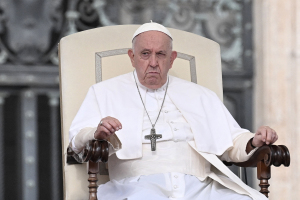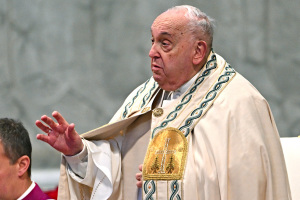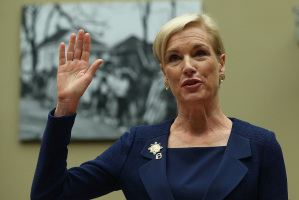Theology Group Reflects on Impact of Prosperity Gospel
The growing prevalence of the prosperity gospel around the world, and particularly in Africa, has prompted a group of theologians to release a statement of concern and a call for further reflection.
While recognizing that "there are some dimensions of prosperity teaching that have roots in the Bible," the Lausanne Theology Working Group says its overall view is that "the teachings of those who most vigorously promote the 'prosperity gospel' are false and gravely distorting of the Bible."
The statement was released this month through Christianity Today and is derived from a number of papers that were discussed at the group's meetings in October 2008 and September 2009.
The theology group, which includes the Revs. Dr. Chris Wright and Dr. John Azumah, makes clear that its intent is not to be "exclusively negative" regarding the health and wealth gospel and recognizes the social realities within which the teaching flourishes. But the group finds the overall impact of the teachings on churches pastorally damaging, spiritually unhealthy and may even deflect people from the message and means of eternal salvation.
"We ... request the Lausanne movement to be willing to make a very clear statement rejecting the excesses of prosperity teaching as incompatible with evangelical biblical Christianity," the statement reads.
Prosperity gospel, as defined by the Lausanne theologians, is the teaching that "believers have a right to the blessings of health and wealth and that they can obtain these blessings through positive confessions of faith and the 'sowing of seeds' through the faithful payments of tithes and offerings."
Pentecostal churches are largely associated with the teaching. In a 2006 Pew Forum survey, majorities of Pentecostals in the 10 countries surveyed said they believe God will grant good health and relief from sickness to believers who have enough faith; and in nine of the countries, most Pentecostals say that God will grant material prosperity to all who have enough faith. Higher majorities of African believers were found to embrace the teachings.
The prosperity gospel, however, is a phenomenon that cuts across denominational barriers, the Lausanne group acknowledges, and can be found in charismatic as well as mainstream Protestant churches.
Among some of the prosperity teachings the theologians reject is the notion that "God's miraculous power can be treated as automatic, or at the disposal of human techniques, or manipulated by human words, actions or rituals."
They also "deplore the clear evidence that many of them have in practice moved away from key and fundamental tenets of evangelical faith, including the authority and priority of the Bible as the Word of God, and the centrality of the cross of Christ."
While recognizing the phenomenal growth of the numbers of professing Christians and the testimonies of those who have been positively impacted by prosperity teachings, the group observes equally the many people who have been "duped" by the teachings into false faith and false expectations.
The Lausanne group also points out the flamboyant lifestyle and manipulative behavior of many leaders who promote prosperity teachings as unethical and idolatrous.
While the prosperity gospel enriches those who preach it, multitudes of people, particularly the poor, are left no better off than before and with the added burden of disappointed hopes, the statement adds.
The statement notes that much of the teaching comes from North American sources.
In the United States, six ministries that promote the prosperity gospel are being investigated by Sen. Chuck Grassley (R-Iowa) following media reports and allegations of opulent spending and possible abuse of nonprofit status. They have been asked to submit financial records and answer questions regarding organizational and personal spending. The ministries being probed include Joyce Meyer Ministries, World Healing Center Church, Without Walls International Church, New Birth Missionary Baptist Church/Eddie L. Long Ministries, Kenneth Copeland Ministries, and World Changers Church International/Creflo Dollar Ministries.
The Lausanne Theology Working Group serves the Lausanne Movement, a Christian movement focused on world evangelization.





























